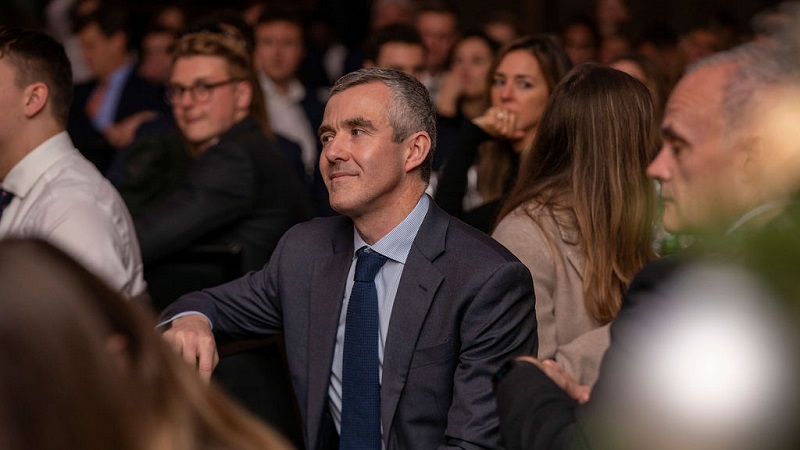Quilter Cheviot’s head of research Nick Wood is looking to value, credit, and emerging markets as he braces for a challenging market environment in 2023.
With global growth looking uncertain and bond yields at elevated levels compared with recent history, Wood (pictured) has picked out three funds that investors might want to consider going into 2023.
“These past 12 months have been some of the most difficult on record for investors. Geopolitical and localised factors meant there were very few hiding places, and those assets that you previously relied on for diversification struggled mightily,” Wood said.
“However, wherever volatility rears its head, opportunity comes calling quickly afterwards and it is important investors look back on years like 2022 and get their portfolios positioned for a changing environment in 2023.”
While Wood expects value to continue to perform well owing to rising interest rates and elevated energy prices, he added there will also be a focus on quality at a time when global growth is grinding to a “snail’s pace”.
“Coupled with that, yields have risen sufficiently to offer a bit of breathing room for investors should we see economic data come in more negatively than feared,” he said. “And while the picture remains cloudy for the year ahead, investors would be remiss not to look at trends that should do well in 2023 and beyond due to their structural drivers, such as emerging markets.”
Dividends
Set against this backdrop, Wood picks out the Redwheel Global Income, Wellington Global Credit ESG and JP Morgan Emerging Market funds as three which should perform well in 2023 and should be worthy of inclusion within portfolios.
“In recent years, dividends have not featured too highly on investors’ radars, with growth companies very much in favour for all but the last year or so,” he said. “The Redwheel Global Income focuses on high quality dividend-paying companies and invests on a global basis.”
Over multi-decade periods, Wood noted that it has been the case that dividends have made up a significant proportion of investors long-term returns, something which has not been the case in the last 10 years. With inflation remaining persistently high, he argued the protection offered by dividend growth will also be relevant to many.
“We like the team at Redwheel, led by Nick Clay, and their mix of higher quality companies at cheap valuations with steady dividend compounding makes for an attractive proposition both in the current volatile period and longer term”, he said. “The fund has a higher weighting in consumer staples in particular, with holdings such as PepsiCo, Diageo and Unilever amongst the largest positions.
“It also holds a roughly equal weighting in US and Europe,” he added. “Given the natural value bias, the fund has performed well in 2022, having lagged the prior year, but we think 2023 might continue the positive momentum given this focus on quality.”
Are bonds back?
Despite the 40-year bull market in bonds coming to an end so abruptly, Wood said that opportunity has quickly presented itself in the asset class once again.
“Our pick in the space is the Wellington Global Credit ESG fund, which invests primarily in investment grade-rated corporate bonds, but has the flexibility to add value across securitised, government, high yield and emerging markets debt – and this nimbleness will be crucial as economic growth looks so uncertain,” he said.
“The fund has built up a solid track record since its inception in 2012 and tries to diversify the source of returns to help protect and grow capital,” he added. “Corporate credit looks particularly attractive given the widening of bond spreads, whilst the average investment grade business looks in reasonable shape, despite global economic concerns.”
Turning to emerging markets, Wood said the strong dollar and headwinds facing China has meant the region has been the laggard of 2022. However, while there remain plenty of reasons to be cautious, primarily owing to China’s role in the region, he said having a “sensible exposure” to emerging markets may prove to be one of 2023’s best ideas.
“This is why we like the JPMorgan Emerging Markets fund, run by Leon Eidelman,” he said. “The fund has a bias towards higher quality growth companies across the emerging markets universe, but importantly is underweight China.”
“India is the largest overweight geographic position in the fund relative to its index, as it looks to take advantage of demographic changes that are ongoing in the country, meaning investors are not overly exposed to the issues facing China,” he added. “Furthermore, the fund has good allocation across investing styles, having increased its exposure to financials in recent months, but also retains a significant weighting in technology.”
While the fund is more growth in nature, Wood said it has the capability of capturing returns from both sides of the value versus growth coin.
“Emerging market consumer behaviour continues to be a long-term structural growth driver in the region and the fund has good exposure to this,” he said. “As such, while this is a fund for 2023, we see it as a core long-term holding too.”
He added: “We are seeing trends such as the premiumisation of products and a preference for domestic brands play out and these will continue to do so for years to come as wealth increases and industries become more mature.”
This story originated on our sister publication, International Adviser







